Product Description
New! Dementia Beyond Drugs Reading Guide

Download and use this guide while reading to assist you in engaging more deeply with the text.
Reducing the use of psychotropic drugs in the symptomatic treatment of dementia is key to successfully implementing compassionate, person-centered practices in your organization—and this book shows clearly why and how it can be done. The revised second edition of this award-winning resource introduces new research, language, and examples to reinforce the core message that antipsychotic medications are not the solution to ease the distress experienced by individuals living with dementia. Outlined here is the information and inspiration you need to provide alternative solutions for individualized support and care.
IN THIS BOOK YOU’LL FIND:
- enlightened models to reduce the use of harmful medications by understanding and addressing underlying causes of distress
- a pathway to accomplish drug-reduction goals established by the U.S. Centers for Medicare and Medicaid Services (CMS)
- discussions of new drug studies and government reports on the dangers and ineffectiveness of antipsychotic medications in the treatment of people with dementia
- recognized best practices in dementia care and their transformational results
- case studies, stories, and other educational tools illustrating positive outcomes for people living with dementia
- ways to respond to anxiety and distress in people with dementia
An essential read for all professionals in long-term care, including administrators, medical directors, nursing staff, psychologists and counselors, social workers, and policy makers, the ideas presented here call for a revolution in dementia care—one that always puts the person first.
Also by G. Allen Power
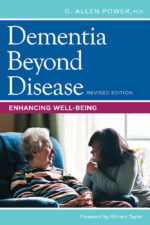
Format: E-book
e-ISBN 978-1-938870-67-5
E-book available through:
Also available through: Baker and Taylor, OverDrive, Gardners, and Follett
About the Author
Acknowledgments
Foreword to the Second Edition, by Kate Swaffer, M.Sc.
Foreword to the First Edition, by William H. Thomas, M.D.
Preface to the Second Edition
Prologue: Simone’s Story
Introduction: What It Isn’t, What It Is
PART 1. PARADIGMS AND PROBLEMS
- The Universe of Dementia: And What Lies Beyond
- The Pill Paradigm: A Critical Look at Medication Use
- “I Have a Feeling We’re Not in Kansas Anymore”: Experiencing the Institutional Model
- “Abandon Hope”: A Deeper Look at Institutionalization
PART 2. SHIFTS
- “Other Eyes”: Introducing the Experiential Model
- Putting the Dragon to Sleep: Deinstitutionalizing Care Environments
- Bingo and Bird Funerals: Meaning and Activity in Daily Life
- Death of the Nursing Home? Aging in Community
PART 3. SOLUTIONS
- Face to Face: Basic Interpersonal Approaches
- Getting Past the Words: Language and Communication
- “I Know You’re My Friend”: General Advice for Understanding Distress
- “I Want to Go Home”: Approaches to Specific Scenarios
- “They’re Poisoning the Food”: Nondrug Approaches to Paranoia, Hallucinations, and Delusions
- “How Low Can You Go?” Can We Achieve Drug-Free Care?
References
Resources
Index
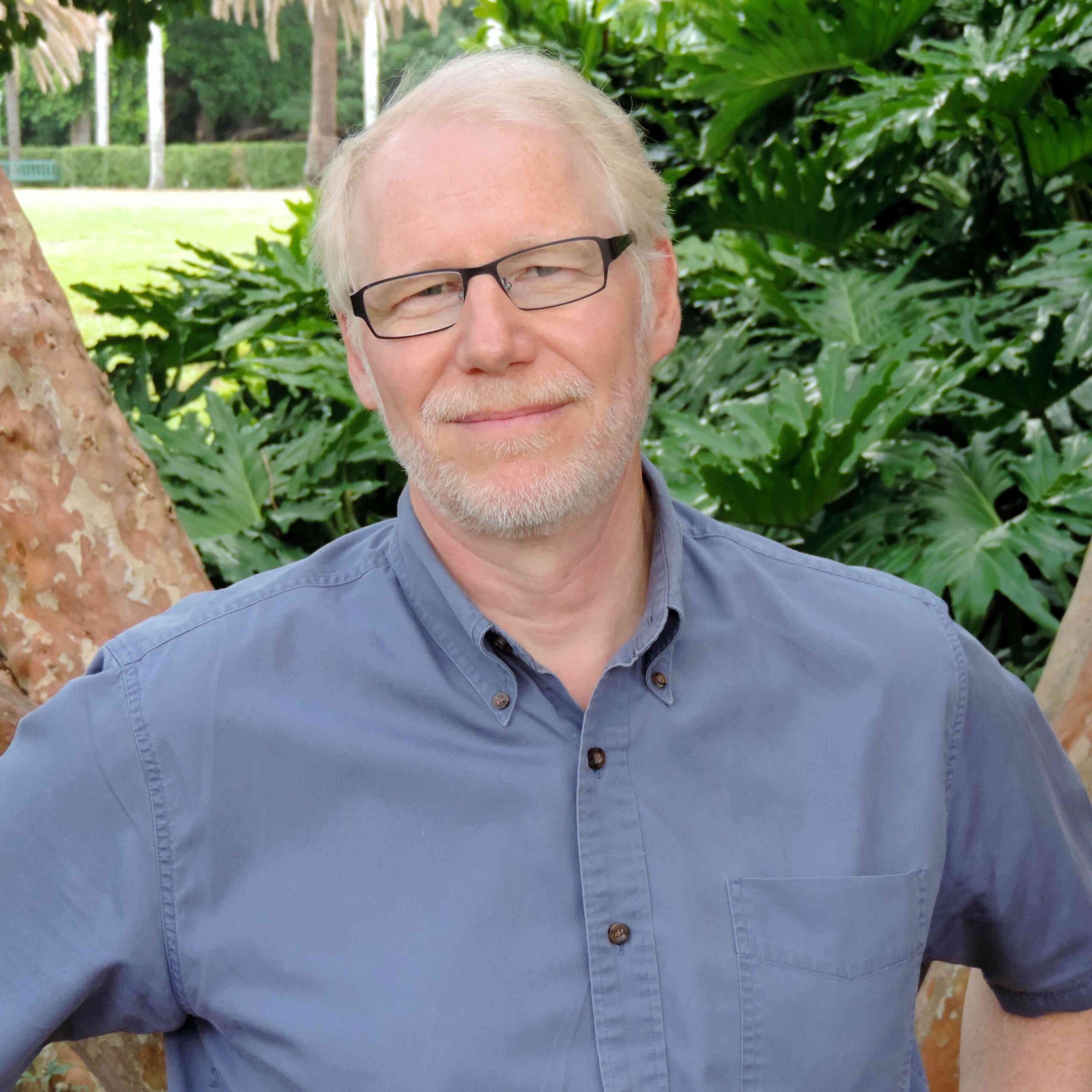 G. Allen Power, M.D., is a board-certified internist and geriatrician and Clinical Associate Professor of Medicine at the University of Rochester, New York. He is a Fellow of the American College of Physicians—American Society of Internal Medicine, and an international educator on transformational models of care for older adults, particularly those living with changing cognitive abilities.
G. Allen Power, M.D., is a board-certified internist and geriatrician and Clinical Associate Professor of Medicine at the University of Rochester, New York. He is a Fellow of the American College of Physicians—American Society of Internal Medicine, and an international educator on transformational models of care for older adults, particularly those living with changing cognitive abilities.
Dr. Power’s first edition of Dementia Beyond Drugs: Changing the Culture of Care was named a 2010 Book of the Year (in Psychiatric/Mental Health Nursing) by the American Journal of Nursing. He served on the technical advisory panel for the U.S. Center for Medicare and Medicaid Services for their national antipsychotic reduction initiative. Dr. Power was interviewed for the film Alive Inside, winner of the Audience Award for Best U.S. Documentary at the 2014 Sundance Film Festival. He also was a member of the Scientific Program Committee and a keynote speaker for Alzheimer’s Disease International Conference 2015 in Perth, Western Australia.
Dr. Power was named one of “Five Leaders of Tomorrow” by Long-Term Living Magazine in May 2013. His second book, Dementia Beyond Disease: Enhancing Well-Being, was originally published by Health Professions Press in 2014 and was re-released as a revised edition to coincide with the publication of the second edition of Dementia Beyond Drugs.
An accomplished musician and songwriter, Dr. Power’s music has been performed on three continents. His song of elder autonomy, “If You Don’t Mind,” was performed by Peter, Paul, and Mary, and Walter Cronkite used his song “I’ll Love Your Forever” in a 1995 Discovery Channel documentary on American families.
“This is a ‘must have’ book for your library if you care about persons with dementia. It is filled with practical, valuable information and insights that can transform practice. I highly recommend it.”
—Joanne Rader, RN, MN, PMHNP, Nurse Specialist Consultant
“Allen Power’s new book, Dementia Beyond Drugs: Changing the Culture of Care, has just stripped you of your last excuse for not understanding what it takes to bring about real culture change within residential care settings while at the same time reducing the administration of psychotropic drugs. He has answers for questions you’ve had about assisting people living with dementia. Al’s grasp of the subject is comprehensive and his style of communicating is informative, accessible, and inspiring. If you implement the information that Al suggests, you can be the person you’ve always wanted to be when assisting others living with dementia. He’s one of the best guides out there on the pathway to understanding care that treats individuals with dementia with the personal attention, respect, and dignity they deserve.”
—Carol Ende, Executive Director of Eden Alternative
“Allen Power is my kind of physician—one who understands the research and who has a big heart. Drawing on years of experience, he presents a compelling case for eliminating the vast majority of antipsychotic medications used to treat unpleasant symptoms of dementia. Family members and caregivers will embrace his compassionate, relationship-based approach. Dementia Beyond Drugs should be required reading for every long-term care provider.”
—Beth Baker, Journalist and Author of Old Age in a New Age—The Promise of Transformative Nursing Homes
“This extremely important book directs our attention to the virtue and value of engaging individuals with dementia as people rather than as cases to be managed with drugs. Dr. Power’s deep appreciation of how a humane environment can help persons with dementia to flourish rather than to wither should be required reading for all involved with residential care.”
—Steven R. Sabat, PhD, Georgetown University
“Dementia Beyond Drugs: Changing the Culture of Care is a totally engaging book that clearly illustrates the restorative effects of human care in combination with advances in modern medicine. Dr. Al Power makes a compelling case for deep system change, where knowing the person is paramount in our approach to compassionate elder care.”
—Rose Marie Fagan, Co-Founder, Pioneer Network
“This book is groundbreaking, courageous, and awesome, representing a new milestone in dementia care. Dr. G. Allen Power dares to challenge the current paradigm and urges readers to walk the walk of culture change, creating a better world for people with dementia. This thoroughly researched, practical, and deeply compassionate book is a must for all working in the field of dementia.”
—Hilary Lee, MSc, OTR, Chair, The Society for the Arts in Dementia Care (Australia) Inc.
“Al Power has authored a book that fills an enormous gap in our understanding of how we, as individual caregivers and as a society, can improve the care for those with dementia. Written with his characteristic directness, warmth, and compassion, these pages are filled with new insights and clues as to how to avoid dangerous drug therapy and restore dignity and comfort to these individuals. This book will be a landmark in geriatrics and has something of value to family caregivers and season physicians as well.”
—William J. Hall, MD, Paul Fine Professor of Medicine, Director, Center for Health Aging, University of Rochester School of Medicine, Rochester, NY
“Using story after powerful story to reveal the shortcomings of a biomedical approach to care, Dr. Power has helped us open our eyes to a new way of viewing those living with dementia. We have created worlds where our elders with dementia do not want to be, then medicated them to keep them there. Dr. Power’s ‘Experiential Model’ offers us a viable and humanistic alternative to caring for those with dementia. This model challenges care providers to not only open their eyes, but to also see the beauty and potential of the human spirit that remains. Our elders living with dementia are our greatest teachers and Dr. Power has been an exceptional student. He has learned their lessons well and, in this important book, now shares them with us. I hope we are ready and willing to learn.”
–Nancy A. Fox, Chief Life Enhancement Officer, Pinon Management



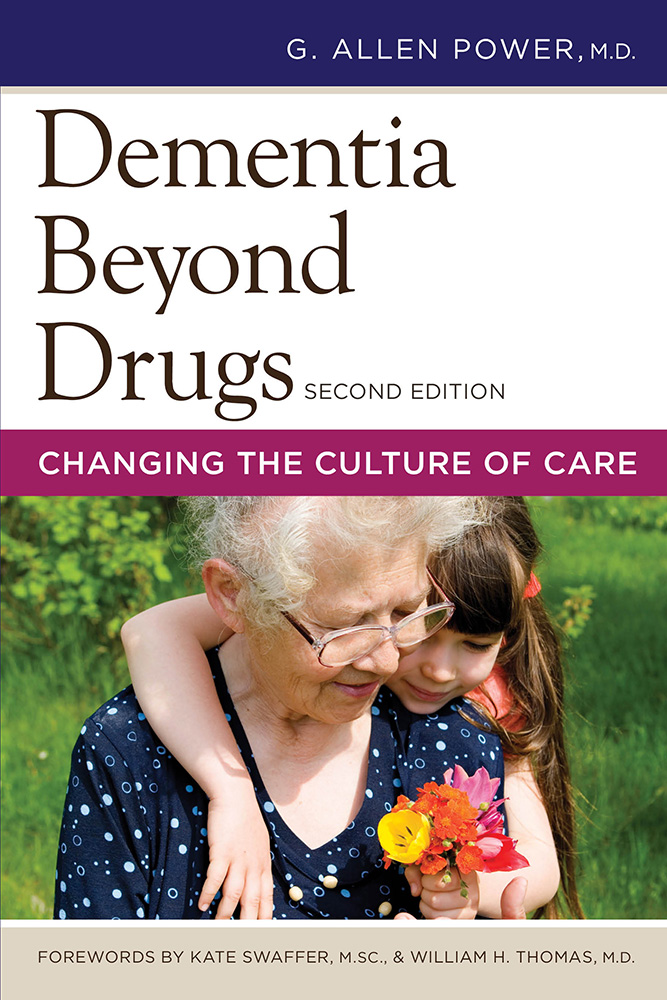
 G. Allen Power, M.D., is a board-certified internist and geriatrician and Clinical Associate Professor of Medicine at the University of Rochester, New York. He is a Fellow of the American College of Physicians—American Society of Internal Medicine, and an international educator on transformational models of care for older adults, particularly those living with changing cognitive abilities.
G. Allen Power, M.D., is a board-certified internist and geriatrician and Clinical Associate Professor of Medicine at the University of Rochester, New York. He is a Fellow of the American College of Physicians—American Society of Internal Medicine, and an international educator on transformational models of care for older adults, particularly those living with changing cognitive abilities.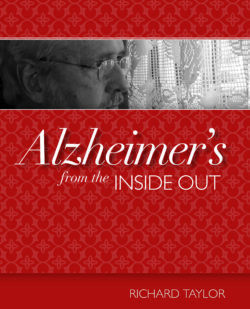
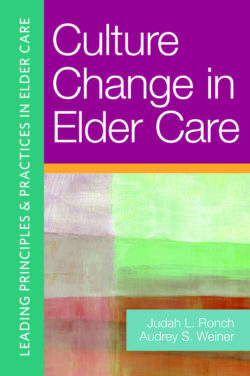
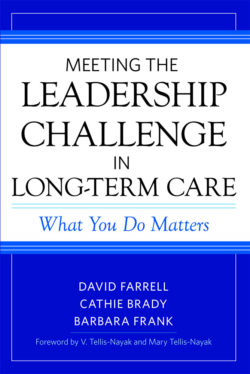
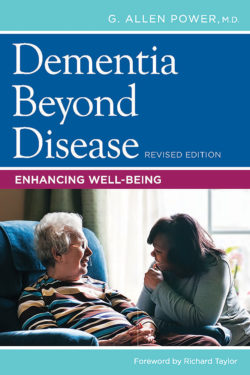
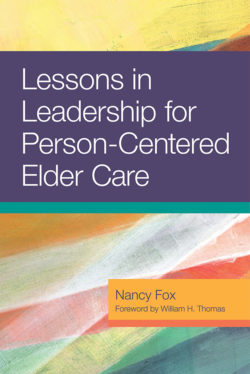
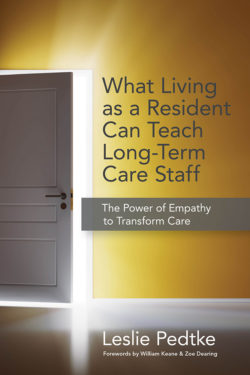
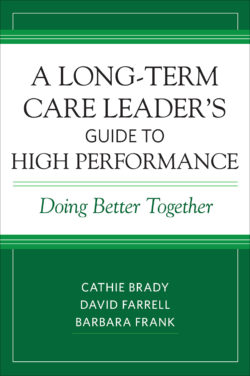
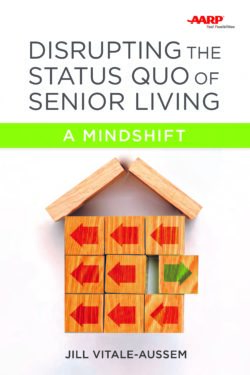
Administrator –
“This book is a must for all who endeavour to better care for our seniors! If we are new to person- and relationship-centred care, it illuminates, instructs, and edifies. If we are already on this journey of enlightened care, it makes palpable our shared understanding and experiences, galvanising us and inspiring us to new heights!”
—Dr. Philip Yap Lin Kiat
Senior Consultant, Dept of Geriatric Medicine Clinical Director, Geriatric Centre Khoo Teck Puat Hospital
Adjunct Association Professor, Yong Loo Lin School of Medicine, National University of Singapore
Administrator –
“As this second edition of a classic demonstrates, Dr. Al Power is a pioneer still on a journey to transform the lives of people with dementia. His work and passion contribute to the bigger picture of challenging medicalization and institutionalization, which are built on limited views of the value of diagnostic labels, the nature of aging, and the power of science. His book offers new hope for the future of aging and care.”
—Peter Whitehouse, M.D.
Professor of Neurology, Case Western Reserve University
Strategic Advisor in Innovation, Baycrest Health Center
Professor of Medicine and Institute of Life Course and Aging, University of Toronto
President, Intergenerational Schools International
Administrator –
“This book is a tour de force and a must read for anyone who cares about individuals who are living with dementia. Dr. Power, through his wonderful insights, pragmatic sensibility, and personal experiences, offers valuable information to change the culture of dementia care that sorely needs changing. The first edition of the book was excellent, yet the second edition is even more enriching. Bravo!”
—Karen Love, Executive Director, Dementia Action Alliance
Administrator –
“This book is a must read for individuals and organisations working with people living with dementia. It certainly sparked a revolution in me personally—which then spread quickly throughout my entire company.”
—Daniella Greenwood, Strategy and Innovation Manager, Arcare Residential Aged Care, Australia
Administrator –
“This transformative, comprehensive, and enriching book will change your perspective towards respecting the humanity of people with dementia. From an experiential model of dementia, Dr. Power sees our loneliness and boredom, and writes of how we can be helped towards wellbeing. Most importantly, he challenges the use of medication, rather than individualised care.”
—Christine M. Bryden, author and dementia advocate